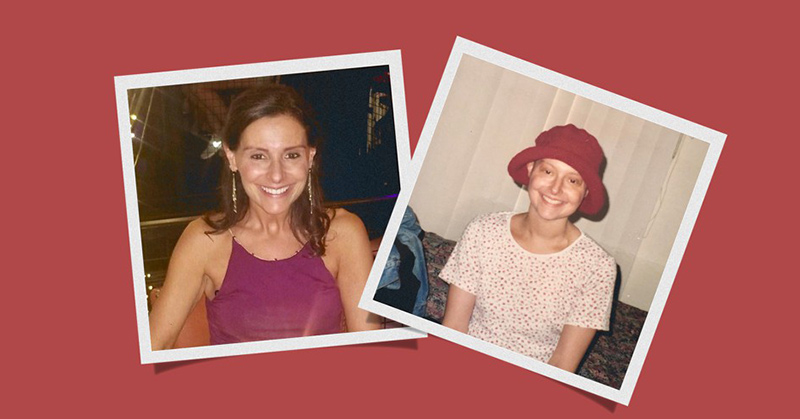Anonymity isn’t what it used to be. Just ask one of the many people who were minding their own business one day and the next day find out they’ve become a meme. Or ask one of the many people affected by an unfortunate data breach.
Hold that thought.
Now imagine being a mother who has just given birth, and is approached about donating umbilical cord blood. You’re promised that both you and your baby will remain anonymous in the event that your cord blood will be used to save a life. So you sign some forms and then don’t give it a second thought.
Hold that thought.
About twenty years ago, 24-year-old Holly Becker of Chicago was diagnosed with non-Hodgkins lymphoma (a cancer of the white blood cells). Her body wasn’t responding to chemotherapy. “I was literally at the point where I was about to die,” she says. (1)
So her medical team recommended a new approach. They would give Becker a transplant of donated umbilical cord blood. Because of its function during pregnancy, cord blood is rich with hematopoietic stem cells, which in turn create all types of blood cells.
Becker consented, and for the next two years, she battled through a lengthy recovery. All of her sick blood cells were replaced by those of an anonymous donor.
Today, Holly Becker is a fully recovered and healthy 45-year-old. She took interest in DNA testing and submitted a sample of her saliva to AncestryDNA to learn more about her family history. (1)
One of AncestryDNA’s services is access to “the world’s largest consumer DNA database [which] matches you to more living relatives who share parts of your DNA and shows their connection to you.” (2) By submitting a DNA sample, you can consent to being contactable by other members of your family tree.
When Becker’s results came back, they revealed an extremely close DNA match to a woman named Dania Davey, whom she had never heard of before. Davey had recently found her birth mother on AncestryDNA and was surprised to see a new relative pop up, so she contacted Becker right away.
At first, the two suspected AncestryDNA had made a mistake. But then Becker thought back to her battle with non-Hodgkin’s lymphoma, and the anonymous donor that had saved her life. She asked Davey if she lived in New York (this was the only information she had been given about her donor), to which Davey said yes. (1)
Becker spoke with her oncologist, Patrick Stiff of Loyola Medicine, who at first thought it was unlikely that her donor’s DNA had been mixed up in her results. Later, after hearing of a similar story, he changed his mind. It was possible that cells from inside Becker’s cheeks or bacteria-fighting white blood cells from her mouth could be picked up by the DNA test.
To solve the mystery, Becker asked Dania Davey if her son, Patrick, was willing to do a DNA test as well. The results were a 100% match! (1)
Twenty years after an anonymous donation of cord blood cells, a chance family history test picked up on two people from different parts of the country who now shared the same DNA.
In fact, AncestryDNA does not recommend their services for recipients of bone marrow or stem cell transplants. (3) We can see their reasoning from Becker’s story.
But there are also concerns that family history and DNA testing might accidentally undo the work that donor organizations do to ensure privacy and anonymity to their donors.
“We just didn’t think technology like this would exist and this scenario would arrive,” says Joanne Kurtzberg, the director of the Carolinas Cord Blood Bank. (1)
Kurtzberg explained to The Atlantic that privacy is especially important for umbilical cord donors in order to protect the babies. In a worst-case scenario, a recipient might need more blood cells and begin to harass the donor’s family for bone marrow from their young child.
Kurtzberg thinks donor banks might have to adjust their privacy statements to let people know of the new possibility of becoming un-anonymous through consumer DNA tests.
(For the record, donating blood – compared to stem cells or bone marrow – does not pose the same problem. While red blood cells have no DNA, blood transfusions can also contain DNA from white blood cells. But this DNA does not survive in the recipient’s body beyond a few days, explains Michelle N. Gong of Mount Sinai School of Medicine). (4)
But as far as Holly Becker, Dania Davey, and Patrick Davey are concerned, this was a happy accident. “She’s like family now,” Patrick says of Holly. (1) Now there’s a new definition of blood relative!
Read Next: Scientists Have Created This 1-Minute DNA Spit Test To Tell You Exactly How To Lose Weight

